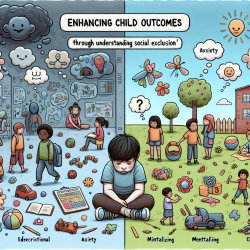Introduction
In the ever-evolving landscape of medical education, innovative approaches are crucial to ensure comprehensive learning experiences. The research article "A Virtual Curriculum to Increase Exposure to Oncologic Subspecialties for Undergraduate Medical Students" provides a profound insight into how virtual learning can be harnessed to enhance medical education, particularly in the field of oncology. This blog explores the key findings of the study and how practitioners can implement these strategies to improve their skills and educational outcomes.
Virtual Learning: A New Horizon
The COVID-19 pandemic has accelerated the adoption of virtual learning across various fields, including medical education. The study highlights a virtual elective designed to introduce undergraduate medical students to the diverse subspecialties within oncology. This approach not only compensates for the lack of in-person clinical exposure but also offers a structured and flexible learning environment.
Key Components of the Virtual Curriculum
The virtual curriculum was meticulously crafted to address four primary needs:
- Broad Education on Oncology Specialties: The curriculum included virtual panels and didactic sessions led by experts in medical, surgical, radiation, and pediatric oncology.
- Access to Physician Mentorship: Each student was paired with a mentor, providing invaluable guidance and insights into the field of oncology.
- Access to Cancer Patients: Students had the opportunity to interact with cancer patients, gaining firsthand understanding of patient-physician collaboration.
- Opportunities for Collaborative Learning: Students engaged in presentations and discussions, fostering a collaborative learning environment.
Impact and Outcomes
The study's outcomes were promising, with students reporting enhanced understanding and interest in oncology. Key findings include:
- Increased understanding of medical (67%), surgical (75%), and pediatric (66%) oncology.
- Enhanced interest in pursuing a career in oncology, with 100% of students expressing increased interest.
- High value placed on patient exposure and physician mentorship, with 80% of students finding patient sessions particularly enlightening.
Implications for Practitioners
For practitioners looking to improve their skills or educational offerings, the study underscores the importance of integrating virtual learning components. Here are a few actionable insights:
- Embrace Virtual Platforms: Utilize virtual platforms to offer flexible and accessible learning experiences.
- Foster Mentorship: Establish mentorship programs that connect students with experienced professionals in the field.
- Incorporate Patient Interactions: Facilitate interactions between students and patients to enhance understanding of real-world challenges and patient care.
Encouraging Further Research
While the study provides valuable insights, it also opens avenues for further research. Practitioners are encouraged to explore the long-term impact of virtual learning on student outcomes and patient care. Additionally, investigating the effectiveness of virtual mentorship compared to traditional in-person mentorship could yield valuable insights.
To read the original research paper, please follow this link: A Virtual Curriculum to Increase Exposure to Oncologic Subspecialties for Undergraduate Medical Students.










